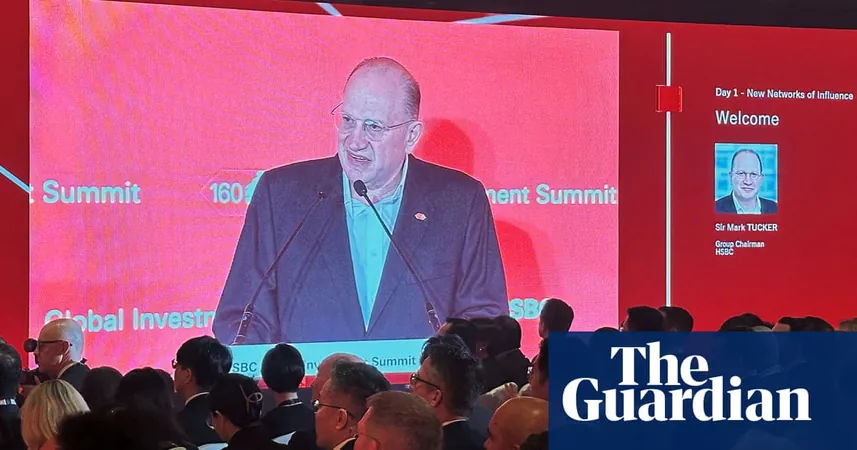
Is Globalisation Dead? HSBC Chair Sounds Alarm Over New Trade Realities
2025-03-25
Author: Emma
In a bold statement, Sir Mark Tucker, chair of HSBC, declared that globalisation "may have now run its course" in its existing form. This statement came during the bank's global investment summit held in Hong Kong, highlighting the escalating geopolitical tensions and the impact of US tariffs on international trade dynamics.
As the world faces increasing uncertainty, Tucker warned of a "serious potential risk to global growth," citing the destabilising effects of trade tensions. His remarks echo concerns that the harmonious trade environment that once characterized globalisation is shifting dramatically. “Economic considerations that once dictated optimal supply chains have contributed to one of the greatest wealth creation periods in history. However, the balance of economic power has changed, and what was sustainable may no longer hold,” he said.
The backdrop to Tucker's assertions cannot be overlooked. Following his re-election campaign, President Donald Trump has implemented a series of tariffs impacting significant trading partners, including Canada, Mexico, and China. To counteract these moves, the European Union has initiated retaliatory measures, and the UK is taking a "pragmatic approach" as it navigates ongoing trade negotiations with the US. On April 2, further tariffs from the Trump administration are anticipated, signalling an ongoing shift in the global trade landscape.
Adding to the economic unease, the U.S. Federal Reserve has revised its economic growth forecasts downwards. The central bank's chair, Jerome Powell, attributed some inflationary pressures to the repercussions of tariffs, emphasizing the interconnectedness of international trade policies and domestic economic health.
Despite this upheaval, Tucker remains hopeful about the future of trade relationships. He posits that rather than regressing, the world may witness new economic alliances forming between regional trade blocs and political groupings. For instance, the expansion of the BRICS group—now inclusive of countries like Iran, the UAE, and Indonesia—illustrates a potential shift towards enhanced intra-group trade.
"As we navigate this period of deep and profound change," Tucker noted, "we expect that economic ties, especially between Asia and the Middle East, will soar." He emphasized that these evolving economic linkages could lead to significant growth opportunities, particularly as emerging markets seek stronger representation and collaboration on the global stage.
HSBC, known as the world’s largest trade finance bank, stands at the forefront of these changes. It is undergoing significant restructuring under new CEO Georges Elhedery, who aims to optimise operations in light of rising geopolitical tensions. As the bank segments its focus between eastern and western markets, it hopes to better position itself to adapt to the shifting realities of global trade.
In conclusion, while the current era of globalisation faces substantial challenges, new alliances and trade relationships are poised to emerge—a transformation that could redefine the future of international commerce. The question remains: Is this the dawn of a new era of trade, or merely the beginning of widespread fragmentation? Only time will tell.

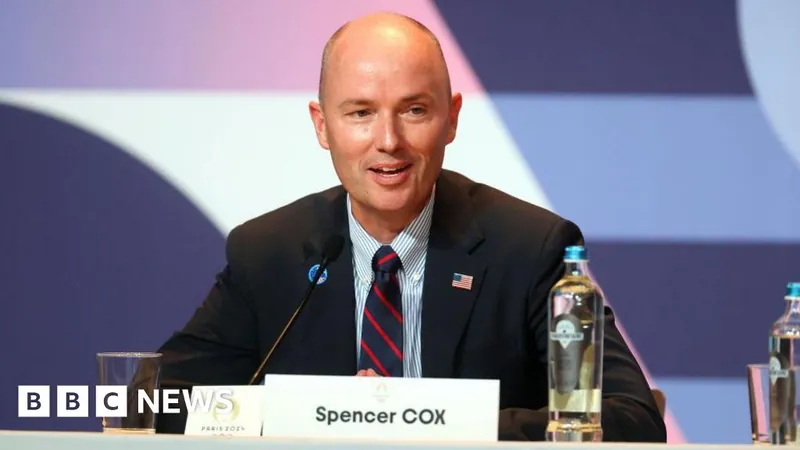

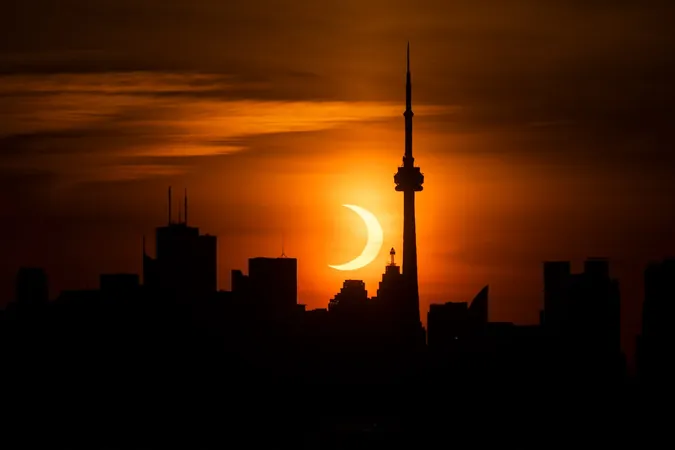
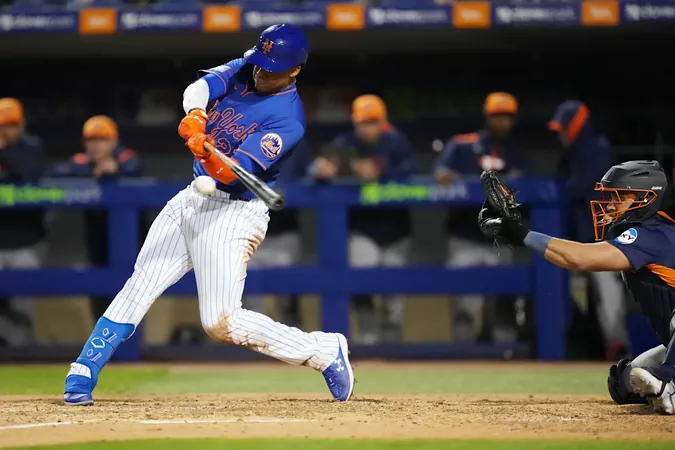
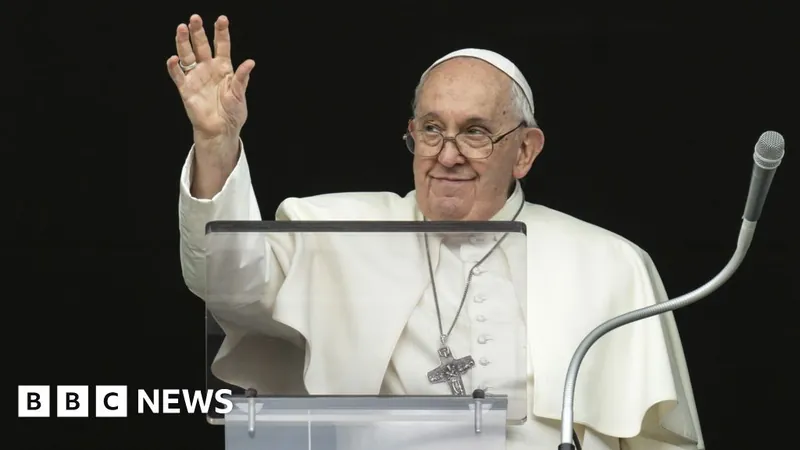

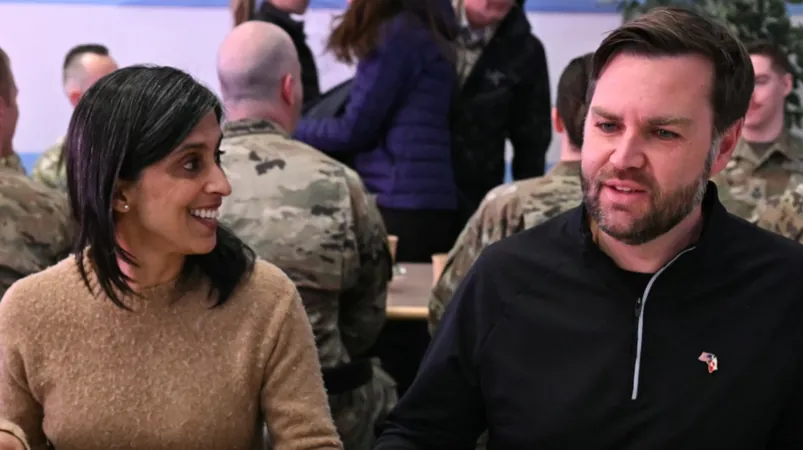

 Brasil (PT)
Brasil (PT)
 Canada (EN)
Canada (EN)
 Chile (ES)
Chile (ES)
 Česko (CS)
Česko (CS)
 대한민국 (KO)
대한민국 (KO)
 España (ES)
España (ES)
 France (FR)
France (FR)
 Hong Kong (EN)
Hong Kong (EN)
 Italia (IT)
Italia (IT)
 日本 (JA)
日本 (JA)
 Magyarország (HU)
Magyarország (HU)
 Norge (NO)
Norge (NO)
 Polska (PL)
Polska (PL)
 Schweiz (DE)
Schweiz (DE)
 Singapore (EN)
Singapore (EN)
 Sverige (SV)
Sverige (SV)
 Suomi (FI)
Suomi (FI)
 Türkiye (TR)
Türkiye (TR)
 الإمارات العربية المتحدة (AR)
الإمارات العربية المتحدة (AR)